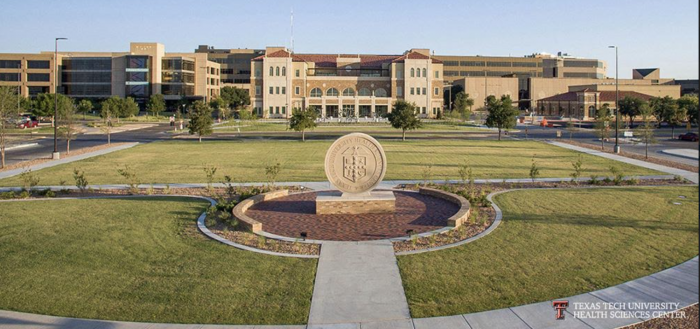These positions not only contribute to the construction and maintenance of essential infrastructure but they also play a vital role in shaping the future of our communities.
If you are someone with a passion for engineering and a desire to make a lasting impact, exploring opportunities in government engineering could be the perfect fit for you.
Government environmental jobs are on the rise…and environmentally-focused individuals are needed to fill them.
KEY TAKEAWAY
- Government engineering jobs span various sectors, including civil, environmental, electrical, mechanical, and structural engineering.
- Working in government engineering positions provides stability, job security, opportunities for professional development, and the chance to make a meaningful impact.
- To pursue a career in government engineering you’ll want to follow some specific steps to ensure your chances of gaining employment in your chosen field.
- ⇀ What Types of Government Engineering Jobs Are Available?
- ⇀ What are the Benefits of Pursuing Government Engineering Jobs?
- ⇀ How Do I Navigate the Application Process for Government Engineering Jobs?
- ⇀ Local or Federal Government Jobs? The Benefits of Each
- ⇀ Are You Ready to Find Your Next Employment Opportunity? Careers in Government is Ready to Help
Government engineering jobs encompass a wide range of roles and responsibilities across various sectors and industries.
From transportation and infrastructure to environmental and energy sectors, government agencies at the local, state, and federal levels offer diverse opportunities for engineers to apply their expertise and contribute to the betterment of society. In addition to these specializations, there is a growing demand for engineers with expertise in government audit and compliance jobs. These engineers ensure that government projects adhere to safety regulations, environmental standards, and financial accountability measures.
What Types of Government Engineering Jobs Are Available?

The field of engineering is quite extensive, and there are positions that will appeal to those with a variety of interests and talents
Whether your passion lies in designing sustainable infrastructure, developing innovative technologies, or ensuring environmental compliance, there’s a niche for you within the realm of engineering.
Let’s look at some of the most common and valued types of engineering positions that are available now.
Civil Engineering:
Civil engineers play a crucial role in the planning, design, construction, and maintenance of infrastructure projects such as roads, bridges, dams, and buildings.
Government agencies responsible for transportation and public works often employ civil engineers to oversee infrastructure development and ensure the safety and functionality of public facilities.

Environmental Engineering:
An environmental engineer will focus on protecting and preserving natural resources and land management, managing waste and pollution, and ensuring energy efficiency compliance with environmental regulations.
Government agencies involved in environmental protection, such as the Environmental Protection Agency (EPA) and state departments of environmental quality, employ environmental engineers to address environmental challenges and promote sustainable practices.

Electrical Engineering:
Electrical engineers design and maintain electrical systems, power grids, and telecommunications networks essential for modern society.
Government agencies like the Federal Energy Regulatory Commission are responsible for energy production, distribution, and regulation and often hire electrical engineers to ensure the reliability and efficiency of electrical infrastructure and promote the adoption of renewable energy technologies.

Mechanical Engineering:
Mechanical engineers contribute to the design, development, and maintenance of mechanical systems and equipment across various industries, including manufacturing, aerospace, and defense.
Government agencies involved in defense, space exploration, and national security employ mechanical engineers to support research, development, and testing of advanced technologies and systems.

Structural Engineering:
Structural engineers specialize in designing and analyzing structures such as buildings, bridges, and towers to ensure their safety, stability, and durability.
Structural engineers are often hired to oversee the structural design and integrity of public infrastructure projects.

Aerospace Engineering:
Aerospace engineers specialize in designing, testing, and manufacturing aircraft, spacecraft, satellites, and missiles.
In the government sector, aerospace engineers are employed by agencies such as the National Aeronautics and Space Administration (NASA), the Army Corps, the Air Force and the Department of Defense, the Stennis Space Center, and the Federal Aviation Administration (FAA). Aerospace engineers are needed to develop and oversee aerospace projects and programs.
They contribute to the design and operation of spacecraft for scientific research, satellite communication systems for national security, and aviation safety regulations for commercial airlines.

Biomedical Engineering:
Biomedical engineers apply engineering principles and techniques to the field of medicine and healthcare.
At the federal government level, biomedical engineers work in agencies such as the National Institutes of Health (NIH) and the Food and Drug Administration (FDA) to research and develop medical devices, equipment, and pharmaceuticals.
They play a crucial role in ensuring the safety and efficacy of healthcare products, conducting clinical trials, and advancing medical technology to improve patient care and public health outcomes.

Data Science Engineering:
Data science engineers specialize in collecting, analyzing, and interpreting large datasets to extract valuable insights and inform decision-making processes.
Data science engineers work in agencies such as the U.S. Census Bureau, the Department of Health and Human Services (HHS), and the Environmental Protection Agency (EPA) to analyze demographic trends, public health data, and environmental monitoring data.
They develop predictive models, data visualization tools, and data-driven policies to address social, economic, and environmental challenges and improve government services and programs.

Industrial Engineering:
Industrial engineers focus on optimizing complex systems and processes to increase efficiency, productivity, and quality.
They apply principles of optimization, simulation, and systems analysis to streamline government operations, reduce costs, and enhance organizational performance and effectiveness.

Discover available jobs
What are the Benefits of Pursuing Government Engineering Jobs?
Government engineering jobs offer numerous benefits that make them an attractive career choice for engineering professionals:
- Stability and Job Security: Government agencies provide stable employment opportunities with competitive salaries, comprehensive benefits packages, and opportunities for career advancement.
- Impact and Public Service: Government engineers have the opportunity to work on projects that directly impact the lives of citizens and contribute to the overall well-being and prosperity of communities.
- Professional Development: Government agencies often invest in employee training and development programs, allowing engineers to enhance their skills, expand their knowledge, and pursue certifications and advanced degrees.
- Work-Life Balance: Many government engineering positions offer flexible work schedoles, telecommuting options, and generous leave policies, promoting a healthy work-life balance and supporting employee well-being.
How Do I Navigate the Application Process for Government Engineering Jobs?
While an engineering career within the government sector can be an extremely rewarding experience, the application process can be extensive as well as competitive.
It’s important you do your research and make sure you follow the right steps in order to make your application stand out.
- Know Your Skills: Before you begin applying for jobs, make sure you have your resume completed correctly and have everything you need to apply successfully.
- Research Job Opportunities: Explore job listings on government websites, job boards, and professional networking platforms to identify engineering positions that align with your skills, interests, and career goals. Notice if a job requires a bachelor’s degree, previous work experience, or a certain number of years in your field of interest before you apply. You also want to be cognizant of the closing date as well.
- Tailor Your Resume and Cover Letter: Customize your resume and cover letter to highlight your relevant experience, skills, and accomplishments that demonstrate your qualifications for the position.
- Prepare for Interviews: Research the hiring agency, review common interview questions and practice your responses to effectively communicate your expertise, problem-solving abilities, and fit for the role.
- Follow-Up: After submitting your application, respond with a follow-up with the hiring manager or recruiter to express your continued interest in the position and inquire about the status of your application. This demonstrates your enthusiasm and commitment to the role.
Local or Federal Government Jobs? The Benefits of Each
When considering government engineering jobs, it’s essential to weigh the benefits of working at the local, state, or federal level, as each offers distinct advantages and opportunities.
State Government Engineering Jobs: An engineering position at the state level is often needed to bridge the gap between local and federal positions, offering engineers the chance to work on projects that impact statewide policies and programs.
Engineers employed by state agencies may collaborate with local governments, federal agencies, and private sector partners to address regional challenges, implement statewide initiatives, and promote economic development and environmental sustainability.
Whether you choose to pursue a career in local, state, or federal government engineering, each can offer you a variety of unique benefits and opportunities for personal and professional growth.
Local government jobs provide a sense of community involvement and immediate impact, while federal government jobs offer access to larger-scale projects and resources.
State government jobs offer a balance between the two, allowing engineers to work on projects that influence regional policies and programs.
Ultimately, the best fit will depend on your interests, career goals, and desired level of impact and involvement in shaping the future of our society.
Are You Ready to Find Your Next Employment Opportunity? Careers in Government is Ready to Help
Government engineering jobs offer a unique opportunity to combine your passion for engineering with a desire to serve the public good and make a positive impact on society.

Whether you’re interested in infrastructure development, environmental protection, energy systems, or aerospace technology, there are diverse opportunities available in government agencies at the local, state, and federal levels.
By exploring these opportunities, leveraging your skills and experience, and navigating the application process effectively, you can embark on a rewarding and fulfilling career in government engineering that allows you to build today while investing in tomorrow.
Are you ready to find your next exciting engineering opportunity?
Careers in Government is ready to help you. Start your government job search today.




